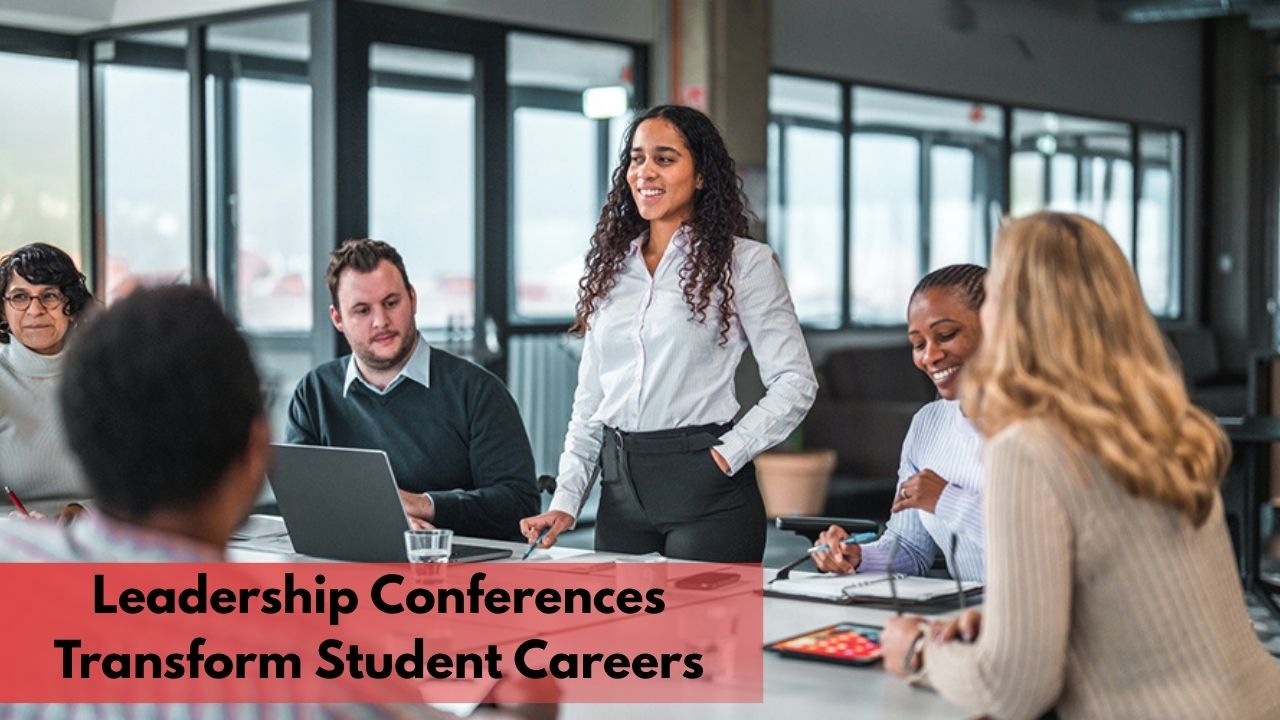Leadership isn’t merely approximately maintaining a name or function—it’s miles approximately have an effect on, growth, and the potential to make a fine effect. For students stepping into the world of higher education and ultimately the activity marketplace, cultivating leadership skills is a recreation-changer. One of the most effective avenues to nurture these abilities is through leadership conferences.
These activities carry together students, educators, enterprise leaders, and changemakers to inspire, teach, and empower the next generation. But past the networking and motivational speeches, management conferences play a far deeper function: they transform scholar careers.
This article explores how leadership conferences form student futures, discussing their advantages, effect on non-public and expert growth, real-existence achievement memories, and recommendations for maximizing the revel in.
1. Understanding Leadership Conferences
Leadership conferences are organized occasions—starting from small campus programs to international summits—designed to broaden leadership features among contributors. They often include:
- Keynote sessions from accomplished leaders
- Workshops and training modules on teamwork, communication, and problem-solving
- Panel discussions on emerging global and industry trends
- Networking opportunities with peers and professionals
- Hands-on projects to apply leadership skills in real time
Examples include Harvard Project for Asian and International Relations (HPAIR), National Student Leadership Conference (NSLC), One Young World Summit, and numerous university-led leadership retreats.
2. Why Leadership Matters for Students
Before diving into the impact of conferences, it’s critical to understand why leadership is critical for students:
- Career Advancement – Employers look for graduates who can lead projects, collaborate, and inspire others.
- Personal Growth – Leadership develops self-confidence, resilience, and adaptability.
- Problem-Solving Abilities – Students learn to tackle challenges creatively and strategically.
- Networking Edge – Leaders naturally build strong personal and professional connections.
- Global Perspective – Today’s leaders need cultural awareness and empathy in an interconnected world.
3. How Leadership Conferences Transform Student Careers
3.1 Building Confidence and Self-Awareness
For many college students, stepping into a leadership convention is their first exposure to an environment packed with bold peers and finished mentors. Engaging in discussions, supplying thoughts, or main institution sports helps them find out their strengths and weaknesses.
- Example: A shy engineering student attending NSLC would possibly return with newfound confidence in public speaking after leading a set presentation.
3.2 Enhancing Communication and Interpersonal Skills
Workshops and role-gambling exercises cognizance heavily on communication—whether or not it’s handing over persuasive speeches, negotiating, or resolving conflicts. These abilities without delay translate into profession success wherein teamwork and clarity are essential.
3.3 Expanding Professional Networks
At leadership conferences, students have interaction with enterprise experts, recruiters, and fellow student leaders from numerous backgrounds. These connections regularly lead to internships, mentorship possibilities, or even task offers.
- Example: A business major attending the One Young World Summit might connect with a startup founder who later offers them a role.
3.4 Exposure to Industry Trends and Global Issues
Conferences often feature discussions on urgent international challenges—sustainability, digital transformation, healthcare innovation, or social entrepreneurship. Students gain insights into actual-international issues past textbooks, making them better prepared for future careers.
3.5 Practical Application of Leadership Theories
Unlike classroom mastering, conferences provide arms-on leadership enjoy. Students may participate in simulations, lead crew projects, or pitch entrepreneurial ideas—practical sporting activities that refine leadership abilities.

3.6 Inspiring Career Direction and Purpose
Hearing keynote speeches from carried out leaders frequently conjures up college students to reconsider their desires. Many discover clarity on career paths or find out passions they hadn’t considered before.
- A law student may shift toward public policy after listening to human rights advocates.
- An economics student might pursue social entrepreneurship after learning about impact-driven startups.
3.7 Boosting Resumes and Career Prospects
Participation in leadership conferences indicators initiative and ambition to capability employers. Mentioning leadership conference experience on a resume sticks out in competitive task markets, demonstrating that a student has long gone past teachers to build management potential.
3.8 Encouraging Innovation and Entrepreneurial Thinking
Conferences frequently highlight innovation, creativity, and trouble-fixing. Students are challenged to provide you with sparkling answers to real-global problems, which nurtures entrepreneurial wondering.
4. Long-Term Career Impact of Leadership Conferences
The benefits extend well beyond graduation:
- Career Advancement – Alumni of leadership conferences often become leaders in their fields.
- Adaptability – They thrive in changing industries, equipped with critical thinking and resilience.
- Community Contribution – Many give back by starting initiatives, NGOs, or mentoring others.
- Global Citizenship – Exposure to diverse cultures prepares them for international roles.
5. Challenges and Criticisms
While leadership conferences are transformative, they also come with challenges:
- High Costs – Some international conferences charge thousands of dollars, limiting access for lower-income students.
- Time Commitment – Students balancing academics and part-time jobs may struggle to attend.
- Overhyped Expectations – Not all conferences deliver lasting value; some focus more on networking than skill-building.
Solutions:
- Scholarships and sponsorship programs can make conferences more accessible.
- Universities can integrate leadership development into their curriculum.
- Students should research and choose conferences aligned with their career goals.
6. How Students Can Maximize Their Leadership Conference Experience
- Prepare in Advance – Research speakers, workshops, and attendees to understand wherein to recognition.
- Engage Actively – Participate in discussions, ask questions, and volunteer for activities.
- Network Intentionally – Exchange contacts with peers and mentors, look at up afterward.
- Take Notes and Reflect – Document training found out and follow them to lecturers and profession making plans.
- Share Knowledge – Bring insights returned to campus groups, golf equipment, or lecture rooms.
7. Real-Life Success Stories
- Case 1: A clinical pupil attended a healthcare leadership summit and later launched a telemedicine startup, improving rural healthcare get right of entry to.
- Case 2: An international scholar networked at a conference and secured an internship at a global consulting firm, shaping their profession trajectory.
- Case 3: A first-generation college pupil received self assurance from main a workshop group, later turning into the president of their university student council.
These stories underline how conferences can serve as career turning points.
Conclusion
Leadership conferences are more than activities—they may be transformational reviews that equip college students with the competencies, self assurance, and vision to thrive in their careers. By imparting networking possibilities, publicity to global problems, and arms-on leadership exercise, those conferences shape no longer simplest character futures but also groups and industries at huge.
For students inclined to step out in their comfort zones, leadership conferences can serve as a launchpad for lifelong achievement. The connections made, capabilities acquired, and inspiration gained often stay with them long after graduation.


